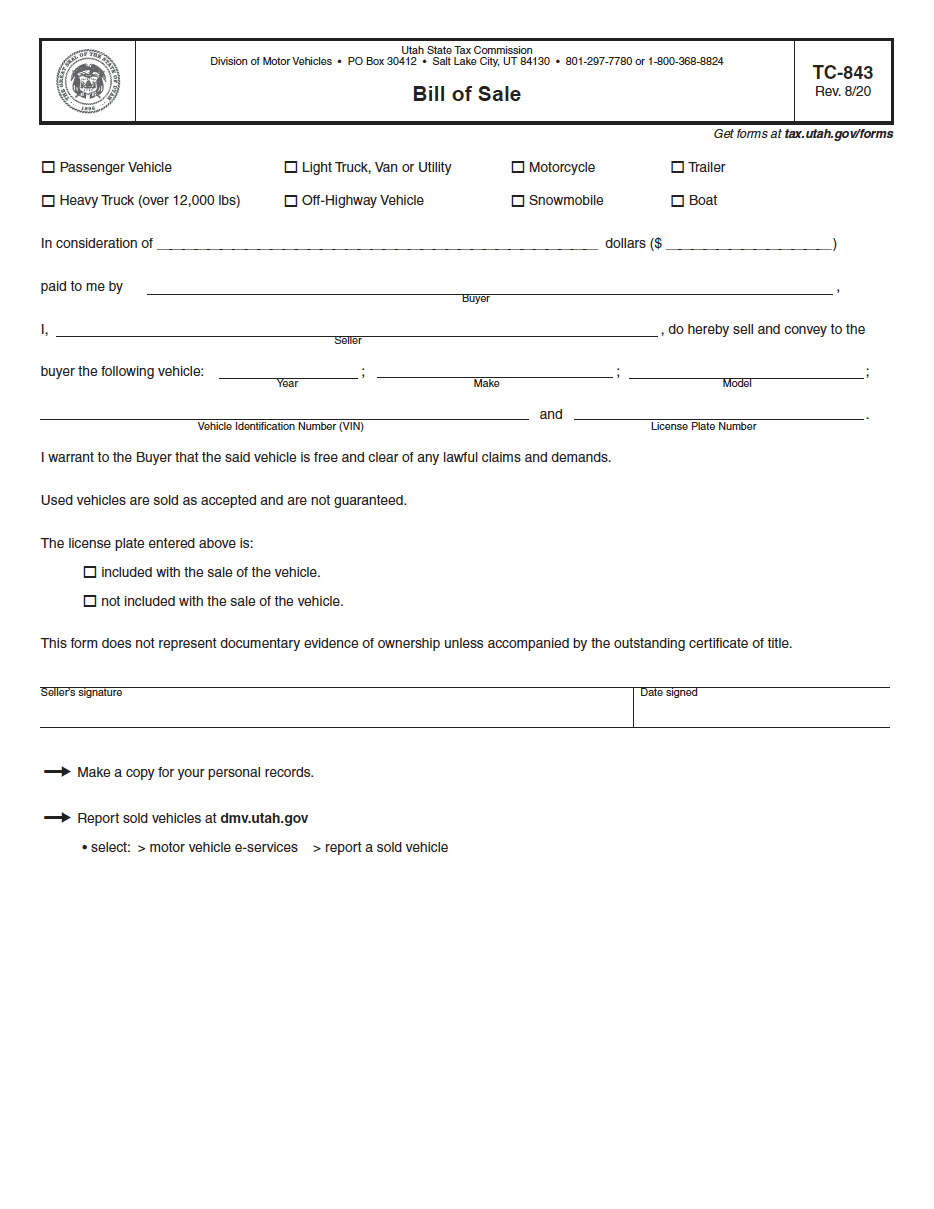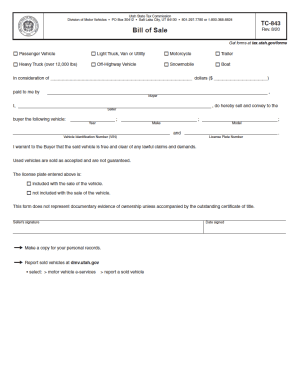Utah Bill of Sale Forms (5)
A Utah bill of sale form serves as a directory, providing contact information for both the buyer and seller and details about the transferred item in a single document. Anyone can quickly reference the form to identify the personal property sold or to reach the involved parties. It offers proof of purchase, establishes ownership, and helps protect the interests of both parties.
Summary
|
Types (5)
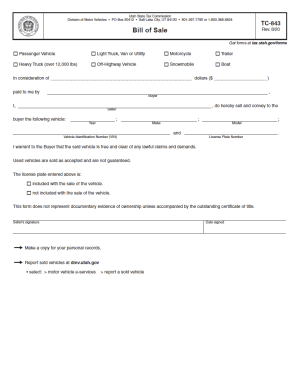 Boat Bill of Sale – Offers proof of a boat or water vessel transaction from the previous owner (the seller) to the current owner (the buyer).
Boat Bill of Sale – Offers proof of a boat or water vessel transaction from the previous owner (the seller) to the current owner (the buyer).
Download: PDF
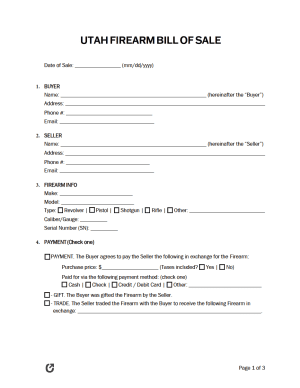 Firearm Bill of Sale – Used to write down the details of a firearm sale, usually involving a handgun, rifle, or shotgun.
Firearm Bill of Sale – Used to write down the details of a firearm sale, usually involving a handgun, rifle, or shotgun.
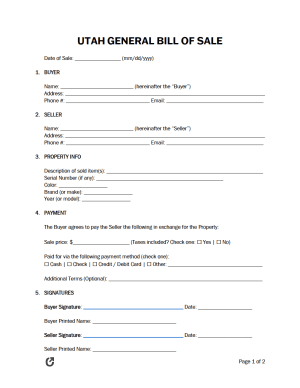 General Bill of Sale – Records the undertaking of a non-specific item by a purchaser from a seller.
General Bill of Sale – Records the undertaking of a non-specific item by a purchaser from a seller.
Download: PDF |
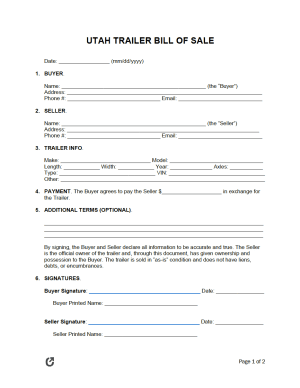 Trailer Bill of Sale – Reinforces the legal transfer of a utility trailer to a buyer from a seller.
Trailer Bill of Sale – Reinforces the legal transfer of a utility trailer to a buyer from a seller.
Signing Requirements
| Bill of Sale Type | Buyer Signature | Seller Signature | Notarization |
| Boat | Not required | Required | Not required |
| Firearm | Required | Required | Not required |
| General (others) | Required | Required | Not required |
| Motor Vehicle | Not required | Required | Not required |
| Trailer | Required | Required | Not required |
What is a Utah Bill of Sale?
A Utah bill of sale form has three main objectives: 1) outlining the transaction details, 2) releasing the seller’s ownership of an item, and 3) documenting the buyer’s acquisition of personal property. The form includes the following information:
- Transaction date;
- Personal details (e.g., full name, address, phone number, email) of the buyer and seller;
- Item’s sale price;
- Payment method;
- Signatures; and
- A notary public seal, stamp, or signature.
Residents can utilize a bill of sale for transactions involving boats, firearms, motor vehicles, and general items. The seller determines the item’s value based on its condition. Buyers can negotiate the terms of the sale if they disagree with the valuation until both parties agree on a price.
For gifted items, accurate valuation is essential, and both parties must record the transaction to ensure a proper transfer of ownership. Additionally, the form can serve as legal evidence in court if either party disputes the sale.
Registration Forms: Boats
Register a vessel at a Division of Motor Vehicles (DMV) location.
|
Registration Forms: Firearms
Residents can possess, purchase, or sell a gun in Utah without registering the firearms or obtaining a permit. Still, individuals can choose to obtain a concealed carry license (CCL), which allows them to bear arms in a non-visible manner. The Department of Public Safety (DPS) issues CCLs, which is where the interested party must submit their application and payment either online or in person.
|
Registration Forms: Vehicles
Car owners must make an appointment with a DMV office to apply for registration.
|
Additional (Optional) Documents
- Emissions – Cars under six (6) years old need an emissions test every two (2) years. The schedule for inspections depends on whether the last digit of the year is odd or even (e.g., 2017 or 2018).
- Certificate of Inspection (Form TC-661) – Only needed for salvage vehicles, ATV registrations, commercial vehicles, and motorhomes with three (3) axles.
- Vehicle Identification Number (VIN) Inspections – First-time vehicle registrations require a VIN inspection. Brand new cars with an MSO are exempt.
- Utah Motor Vehicle Power of Attorney – To give a person permission to register, title, sell, buy, or handle any other related matter for another individual.
Registration Forms: Trailers
Trailers in Utah over 750 pounds (gross weight) require registration and titling. The DMV handles these types of transactions.
|
Additional (Optional) Documents
- Certificate of Inspection (Form TC-661) – The owner must have the trailer’s VIN inspected for first-time titles. New trailers purchased from a dealer do not need an inspection.
